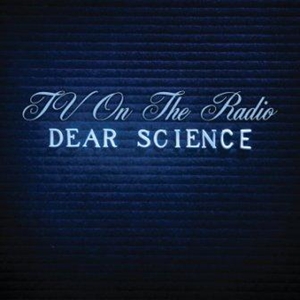
As we watched our grandmother in her hospital bed, my uncle Jean, twenty-two years my senior, told me about the rite of passage that bound us: from him to my aunt to my mother to my brother to me, she spanked us all. Of course, blood and corporal punishment weren’t the only things linking us. Jean spent that hour a year ago effortlessly picking out anecdotes, stories for which I had to reach to the beginning of my memory. In one, my grandfather smiles one of his last smiles at Jean’s wedding—a fact acknowledged in retrospect. And did I remember when my mom told him I liked lettuce and hated tomatoes, and vice versa for my brother? I did. He, his brother, and their three sisters learned our tastes right after they emigrated from Haiti, shortly before the Millennium bug. At least four of them at a time lived in that two-bed apartment in Flatbush. They’ve all since moved out to start families of their own. Uncle Jean is now a director of something in the medical field. I forget what he’s the director of; the point is he’s a director. I grew up watching him work his way there from the bedroom floor, yet I looked at him that night as if he were telling stories not about slow progress but about miracles.
Sometime at the top of this year, I told him I had traveled to Haiti for the first time a few weeks prior. He wore pride and relief on his face as he listened: my girlfriend and I drank within the guarded confines of a resort; we were stuck in traffic by the Toussaint Louverture International Airport, en route to our return flight, when the faces of sellers and beggars smushed against the car windows became so numerous they blotted out the sun. I spoke only of the former, and he smiled. That’s the last time I saw him. On an April Friday, Mom tells me she’s feeling better, but Uncle’s in the hospital. He has the virus.
I’ve seen my mother cry a couple of times, mainly from of the stresses of escaping our poverty. But hearing her on the phone that night—speaking through sobs and heaves behind a closed door at the nursing home, guarding her emotion from her co-workers—was the first time I heard her despair. Numbers tell of how the virus breaks bodies, but not enough of how it serrates wills. There’s little in the immigrant dream that protects itself from a circumstance as extraordinary as a modern plague in the Land of Opportunity. My parents live a floor above me and I refuse to breathe their air, for their own good. The footsteps in the ceiling cease by 12:30 a.m. That’s when I steal upstairs to pay the rent. I tiptoe past the silent quakes of old china and graduation pictures and fragile mementos and lay the cash on the dining room table. My silhouette is gone in seconds.
One of the first facts Dear Science’s Wikipedia page gets off its chest is that the title comes from a note Dave Sitek left in the studio: “Dear Science, please start solving problems and curing diseases or shut the fuck up.” It’s too on the nose to be a 2020 slogan, and was a bit too trivial for me to give it much thought when I discovered the album back in 2009, a college freshman in Buffalo. I’d traveled four hundred miles north to live my mother’s dream, and to also escape. I coddled those MP3s after spending my life sheltered in a Caribbean neighborhood, raised by a family of mostly nurses who wouldn’t have minded more nurses. That black artists could also do gust-conjuring surf rock, mythical folk, and interstellar orchestra at once wasn’t a concept I was taught. Their variegated ideas spent the album coexisting freely, as if some of them weren’t as obliquely juxtaposed as they seemed. The rapid strums on “Halfway Home” sound about as close as you can get to a jet engine without being dismembered, yet even that violent speed can’t overcome the interpersonal distance Tunde Adebimpe sings of (“The words you spoke, I know too much / It’s over now and not enough”). “No bombs are falling on me for sure / But I’m scared to death / That I’m living a life not worth dying for,” seethes Kyp Malone on “Red Dress,” against its triumphant Afrobeat brass. The song’s frustration was aimed at Bush’s presidency; a decade later, you can argue it’s a moving target, even as the basic hope—the right to be a human, maybe even one with a family—remains the same.
But it may not be precise enough to call the relationships among oppressive political forces, the violence we wreak on our loved ones, and human joy simply “juxtapositions.” Dear Science comforts me in how it imparts the truth that the preciousness of that joy lies in its interconnection with those other things. It doesn’t end with the rich being eaten, white supremacy obliterated, or government overthrown, though TV on the Radio probably wouldn’t be opposed to any of that. It ends with a song about fucking. The ribaldry is less the point than its basic nature: when the darkness doesn’t disperse, simply guarding that little light can be revolutionary in itself. Mom says my uncle struggles to speak at length, but he’s recovering. He’ll tell stories again.
— Brian Josephs
Brooklyn, day 79




